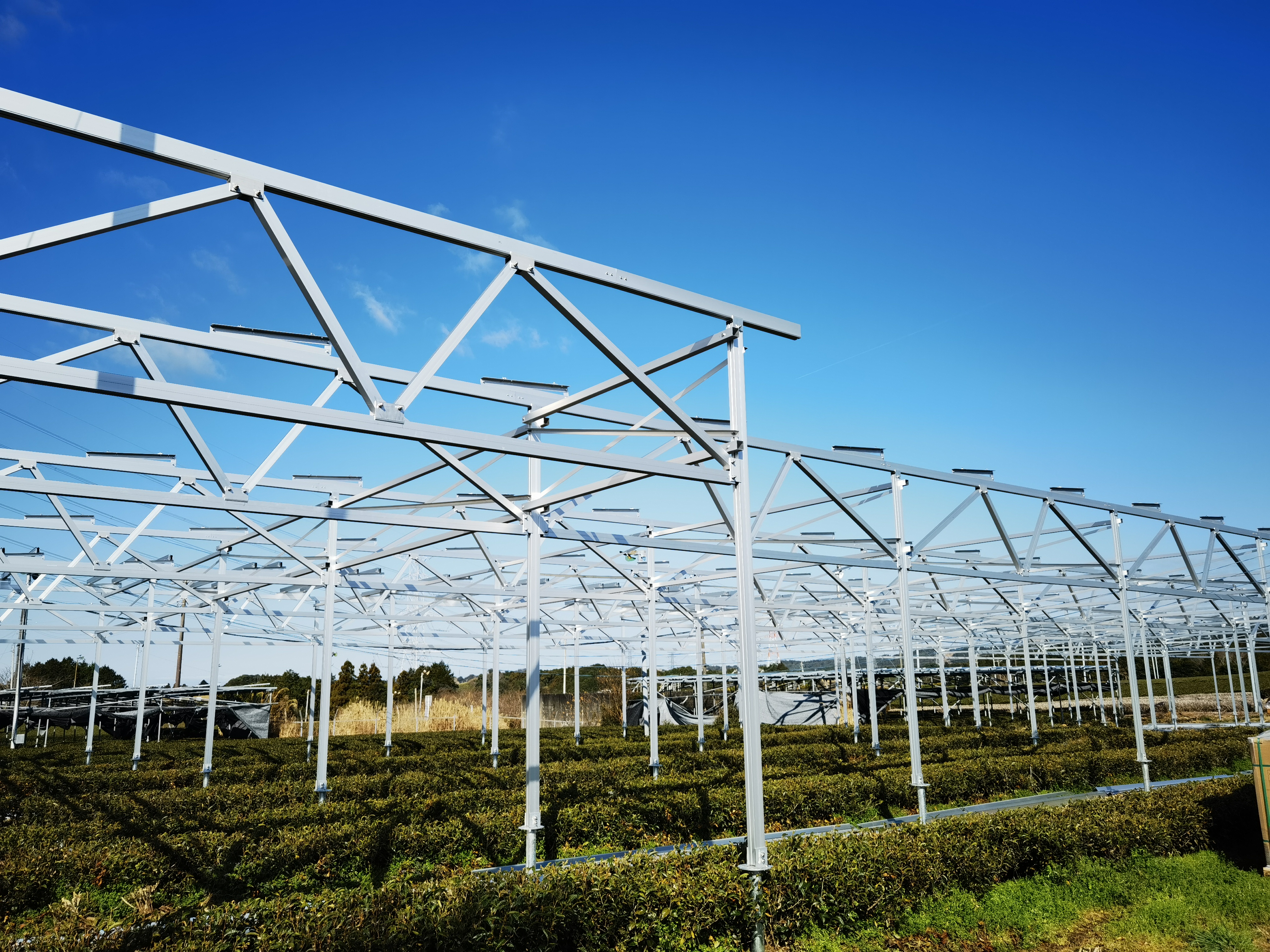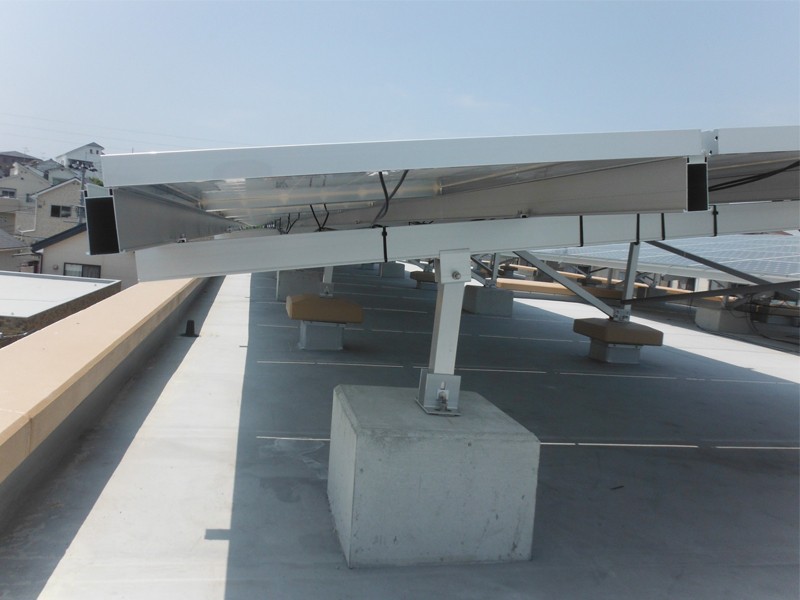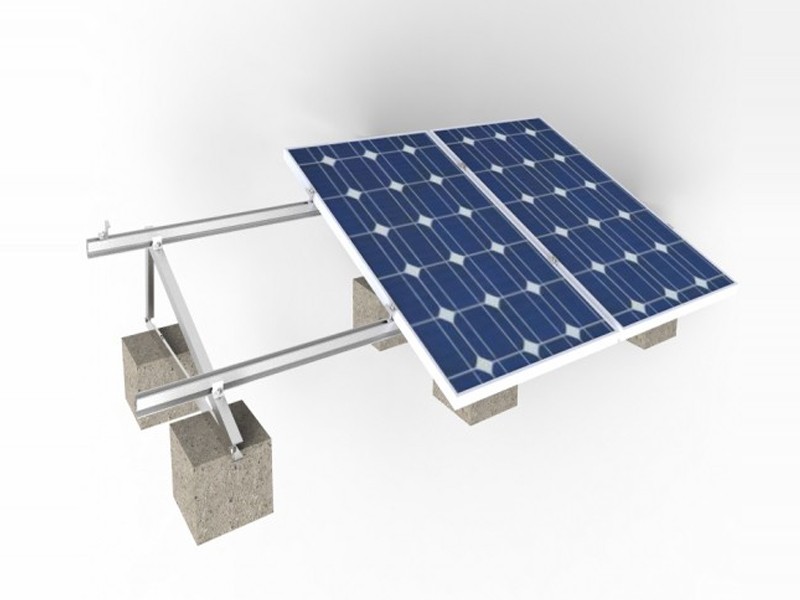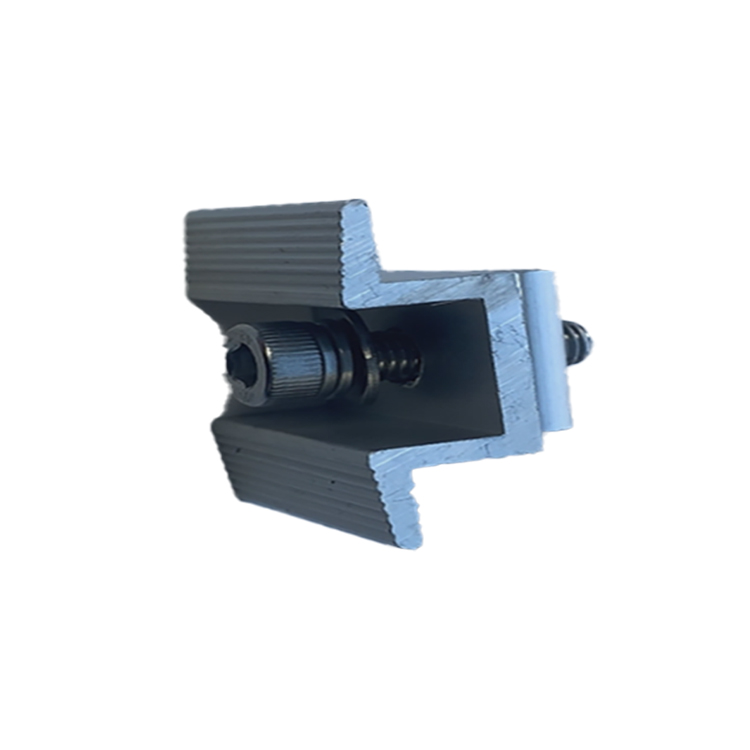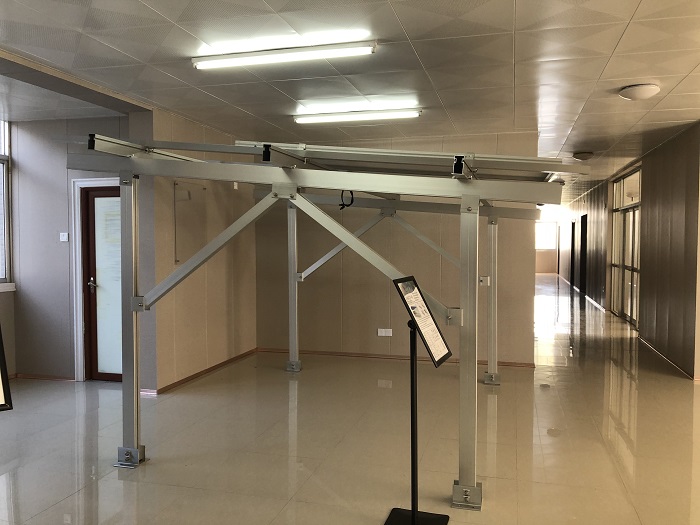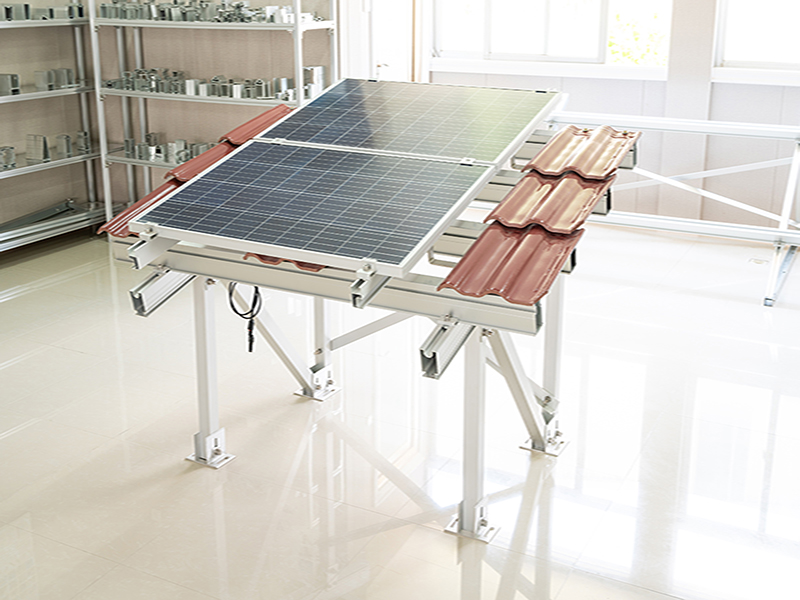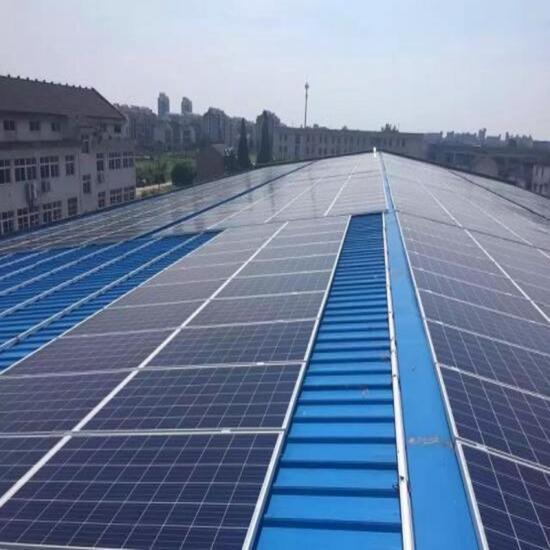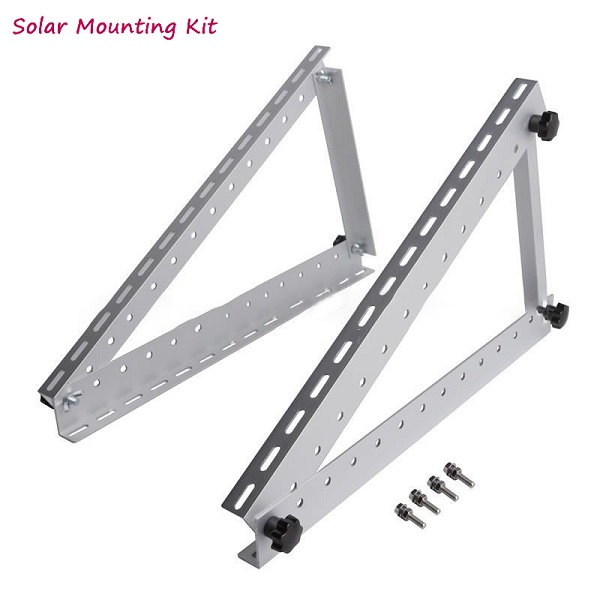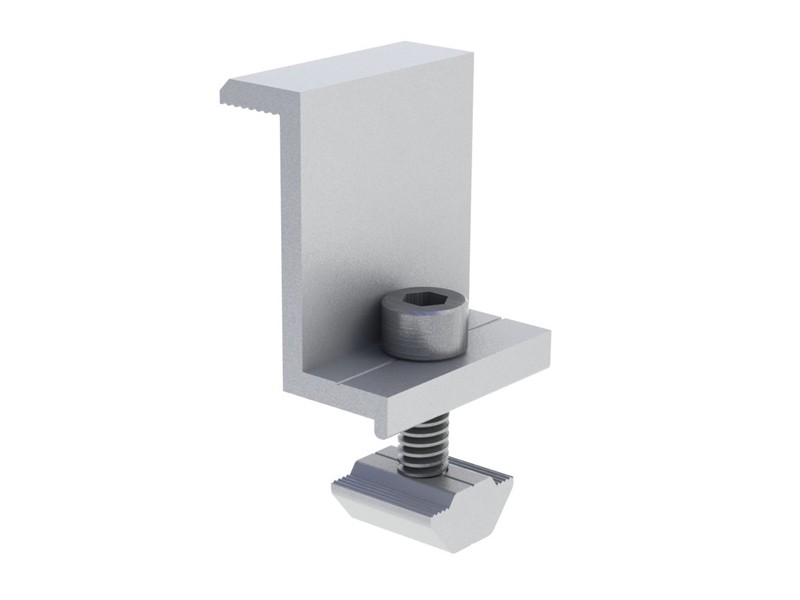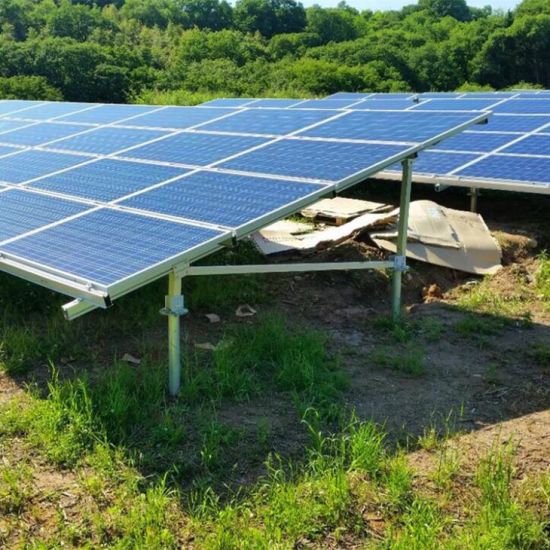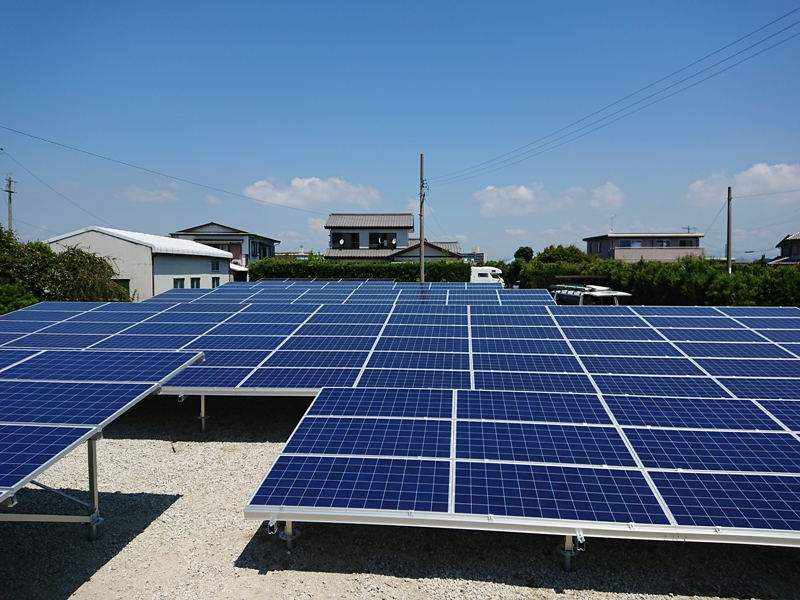What is a Solar Mounting System?
A solar mounting system is the structural support that holds solar panels in place on rooftops, ground surfaces, or other installations. These systems are designed to maximize exposure to sunlight while providing durability against environmental factors like wind, rain, and snow. Proper installation and design of a solar mounting system can significantly impact the energy output of a solar array, making it a critical aspect of any solar project.
Types of Solar Mounting Systems
There are several types of solar mounting systems, each catering to different installation environments:
1.Roof Mounting Systems
These are used for both flat and sloped roofs, allowing solar panels to be securely attached to the building. Roof-mounted systems are popular for residential and commercial buildings as they utilize existing space without requiring additional land.
2.Ground Mounting Systems
Ground-mounted solar panels are ideal for large-scale solar farms or areas where roof space is insufficient. These systems offer flexibility in design and are often adjustable to optimize the angle for maximum sunlight exposure.
3.Carport Solar Mounting Systems
Solar carports are innovative structures that combine vehicle protection with solar energy generation. They are commonly installed in parking lots, providing a dual-purpose solution that generates power while offering shade and weather protection for vehicles.
4.Tracking Mounting Systems
These advanced systems use motors to automatically adjust the angle of the solar panels, allowing them to follow the sun's movement throughout the day. While tracking systems are more complex and costly, they can increase energy production by up to 25%.
Key Benefits of Solar Mounting Systems
1.Improved Energy Efficiency
A well-designed solar mounting system can significantly enhance the energy output of solar panels. By optimizing the angle and position of the panels, these systems ensure maximum sunlight exposure throughout the day.
2.Durability and Longevity
Solar mounting systems are built to withstand extreme weather conditions, ensuring that solar panels remain securely in place for decades. High-quality materials like aluminum and galvanized steel provide excellent corrosion resistance and structural integrity.
3.Cost-Effectiveness
Investing in a robust solar mounting system can reduce long-term maintenance costs and improve the return on investment (ROI) for solar energy installations. Additionally, easy installation and minimal maintenance make these systems highly cost-effective.
4.Versatility
Solar mounting systems are adaptable to a wide range of environments, including rooftops, open fields, and parking lots. This versatility makes them suitable for various applications, from small residential setups to large commercial or utility-scale projects.
Applications of Solar Mounting Systems
1.Residential Solar Projects
Homeowners benefit from roof-mounted systems that allow them to generate clean energy while utilizing unused roof space. Ground-mounted systems are also an option for homes with large outdoor areas.
2.Commercial and Industrial Installations
Businesses can reduce operational costs and demonstrate environmental responsibility by installing solar panels on rooftops, in parking areas, or in unused land with ground mounts. Solar carports are particularly appealing for commercial properties, providing energy while protecting vehicles.
3.Utility-Scale Solar Farms
Large solar farms rely on ground-mounted systems to support hundreds or even thousands of solar panels. Tracking systems are often used to maximize efficiency in these high-capacity installations.
The Future of Solar Mounting Systems
As solar technology continues to evolve, solar mounting systems are also becoming more advanced. Innovations in design, materials, and automated tracking systems are improving the efficiency and reliability of solar installations. Additionally, the demand for renewable energy is driving the development of more cost-effective and environmentally friendly mounting solutions.
Governments and organizations worldwide are pushing for increased adoption of solar energy, which means the solar mounting system market is set to grow significantly in the coming years. With a focus on sustainability, durability, and efficiency, solar mounting systems will remain a crucial element in the expansion of solar power.
Choosing the Right Solar Mounting System
Selecting the right solar mounting system for your project depends on several factors, including the type of installation, location, and budget. It's essential to work with an experienced solar provider who can assess your needs and recommend the most suitable system.
When choosing a solar mounting system, consider the following:
· Durability: Ensure the system is built with high-quality, weather-resistant materials.
· Flexibility: Look for systems that offer adjustable angles for optimal sunlight capture.
· Ease of Installation: A system that is easy to install will save time and reduce labor costs.
Conclusion
Solar mounting systems play an essential role in the success of solar energy projects. By providing secure, efficient, and durable support for solar panels, these systems enable the generation of clean, renewable energy in a wide variety of environments. As solar energy becomes more widespread, investing in the right solar mounting system will be key to achieving long-term efficiency and sustainability.
For more information on solar mounting systems or to request a consultation, contact us today.
